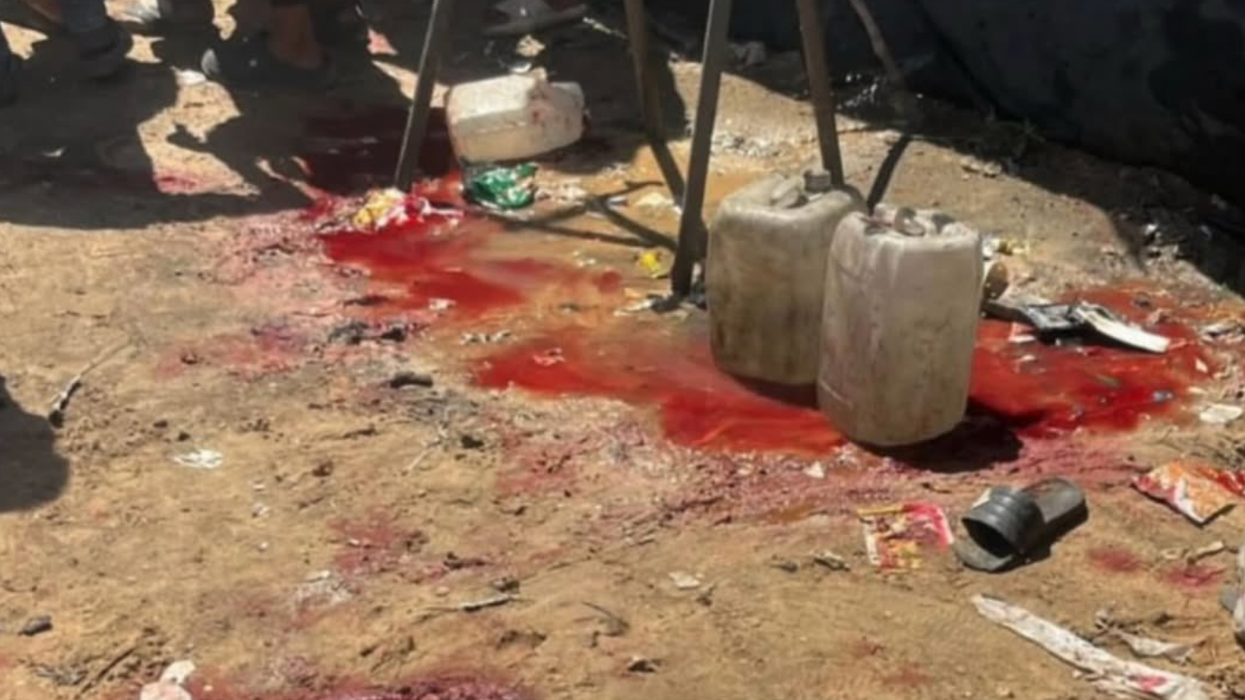Ceasefire Sparks Fresh Calls for Global Media Access to Gaza
Press groups are also demanding justice for the more than 200 journalists slaughtered in Palestinian territory over the past two years.
Since a fragile ceasefire in the Gaza Strip began on Friday, press freedom advocates and critics of Israel's genocidal assault have issued new calls for international media access to the decimated Palestinian territory, including the largest Muslim civil rights and advocacy group in the United States.
"We encourage American and international media outlets to demand direct, unsupervised access to Gaza in the wake of the ceasefire agreement," the Council on American-Islamic Relations (CAIR) said in a statement on Monday, as Hamas returned 20 hostages taken on October 7, 2023 and Israel released over 1,900 imprisoned Palestinians, most of whom were taken captive by Israeli forces over the past two years.
CAIR urged reporters to demand access to "the 1,700 Palestinian men, women, and children going free after Israel occupation forces abducted them from Gaza, held them without charge, and reportedly subjected them to torture in prisons run by Itamar Ben-Gvir," the country's far-right minister of national security.
As Drop Site News' Ryan Grim noted on social media, some Palestinians are already speaking out about the torture they endured:
“Although many media outlets will understandably cover the release of Israeli hostages, it is important to also cover the stories of Palestinian civilians who were kidnapped and other Palestinian hostages who may not go free, such as Dr. Hussam Abu Safiya," said CAIR. "Ignoring Palestinian suffering would give the appearance of bias and create a warped, one-sided image for the public."
"It is particularly critical for American journalists to overcome the Israeli government's attempts to hide the aftermath of the US-funded devastation in Gaza," CAIR added. "Reporters must immediately receive access to Gaza so they can see and report on the consequences of the genocide for themselves."
Unsuccessfully pursuing a Nobel Peace Prize, US President Donald Trump announced last Wednesday night that Israel and Hamas had agreed to the first phase of his proposed plan for Gaza. On Monday, Trump addressed Israeli lawmakers. He also signed a peace deal document, as did Egyptian, Qatari, and Turkish leaders.
A report published last week by the Quincy Institute for Responsible Statecraft and the Costs of War Project at Brown University found that the Trump and Biden administrations provided at least $21.7 billion in military aid to Israel since October 2023. The two-year Israeli assault—widely decried as genocide—has killed at least 67,869 Palestinians and wounded 170,105, the Gaza Health Ministry said Monday. Thousands of people remain missing, and experts believe the true toll is far higher.
Among those dead are hundreds of Palestinian journalists, who have worked to not only survive Gaza but also share stories from there over the past two years, as Israel has largely prevented any international reporters from entering the territory.
The various tallies of journalists slaughtered in Gaza go up to at least 271, which includes Saleh al-Jafarawi, a Palestinian reporter and content creator killed on Sunday. According to The New Arab:
Reports in Arabic media state that the armed militia was affiliated with Israel, and members of the group had been killing displaced Palestinians who were making their way back to their homes in the aftermath of the truce.
When he was found, after being announced as missing early on Sunday, he was wearing a press jacket.
The reporter had amassed a large following on social media for his fearless dispatches from on the ground, despite himself being displaced, starved, and his home bombed.
As Middle East Eye reported Monday, the slain journalist "was buried the same day as his brother Naji al-Jafarawi was released from an Israeli prison as part of an exchange of captives."
After Saleh al-Jafarawi's death, multiple social media users shared a video of him welcoming the ceasefire that started on Friday.
Jonathan Dagher, head of the Middle East Desk at Reporters Without Borders, or Reporters Sans Frontières (RSF), said in a Friday statement that "the relief of a ceasefire in Gaza must not distract from the absolute urgency of the catastrophic situation facing journalists in the territory."
Over 200 journalists have been killed by Israeli forces, "and the reporters still alive in Gaza need immediate care, equipment, and support," he noted. "They also need justice—more than ever. If the impunity for the crimes committed against them continues, they will be repeated in Gaza, Palestine, and elsewhere in the world. To bring justice to Gaza's reporters and to protect the right to information around the world, we demand arrest warrants for the perpetrators of crimes against our fellow journalists in Gaza."
"RSF is counting on the International Criminal Court (ICC) to act on the complaints we filed for war crimes committed against these journalists," added Dagher, whose group has filed five complaints with the tribunal since October 2023. "It's high time that the international community's response matched the courage shown by Palestinian reporters over the past two years."
The board of the Foreign Press Association in Jerusalem also released a statement on Friday. It said that "the FPA welcomes the agreement between the warring parties on a ceasefire in Gaza. With the halt in fighting, we renew our urgent call for Israel to open the borders immediately and allow international media free and independent access to the Gaza Strip."
"For the last two years, the FPA and its members have asked, through all channels, to be let into Gaza to report on the reality of the war. These demands have been repeatedly ignored, while our Palestinian colleagues have risked their lives to provide tireless and brave reporting from Gaza," the group continued.
Israel's Supreme Court is set to hear arguments in a related case next week, "but there is no reason to wait that long," the group added. "Enough with the excuses and delay tactics. The restrictions on press freedom must come to an end."


